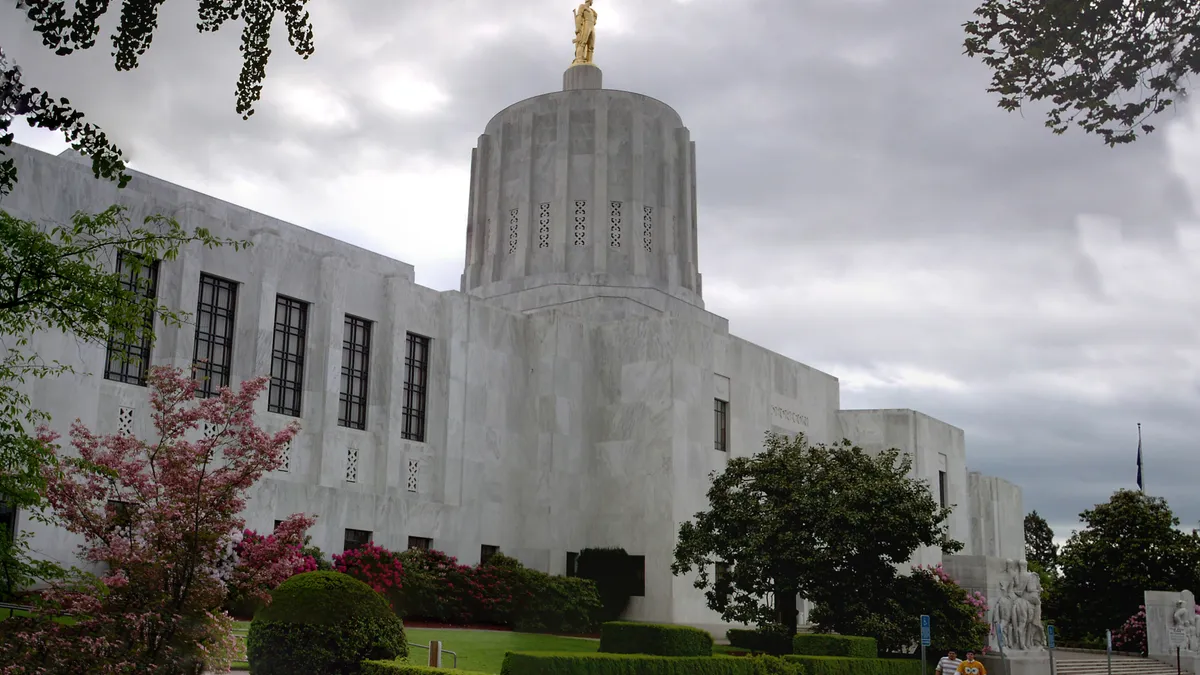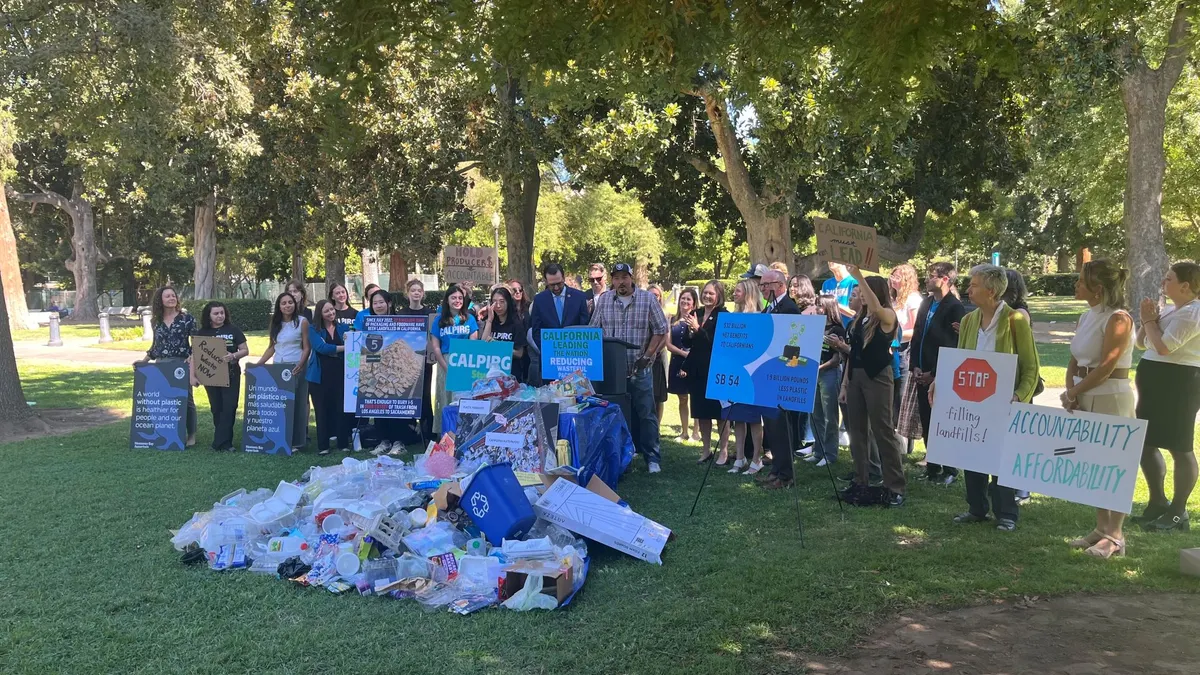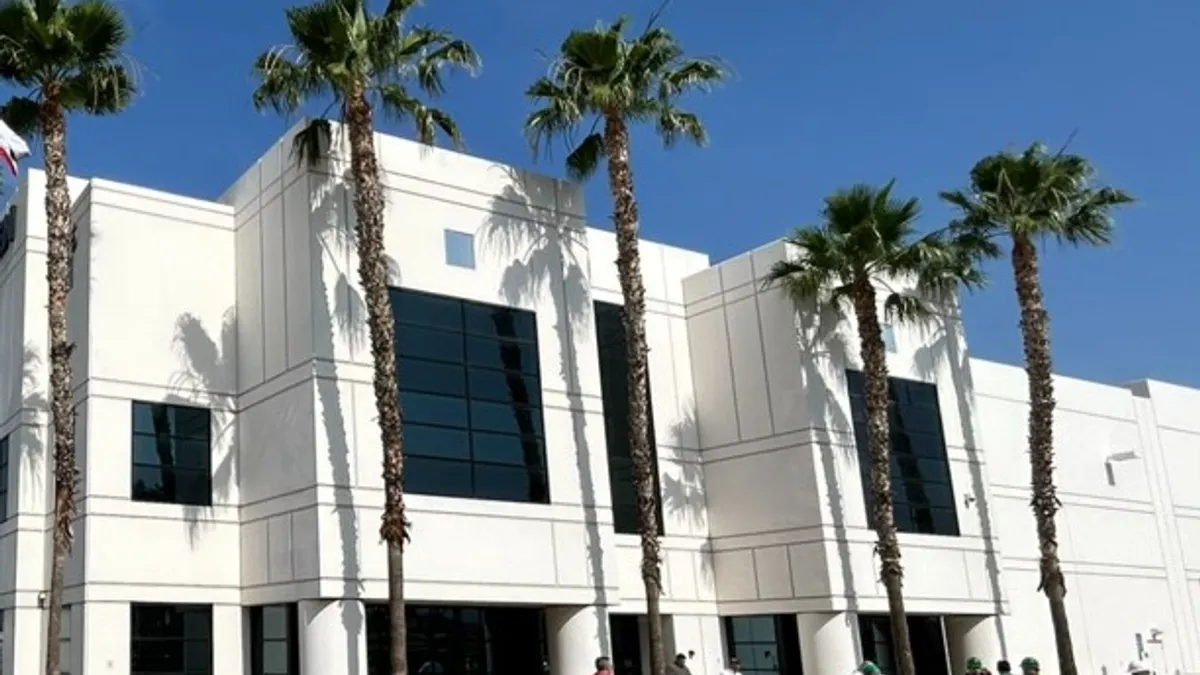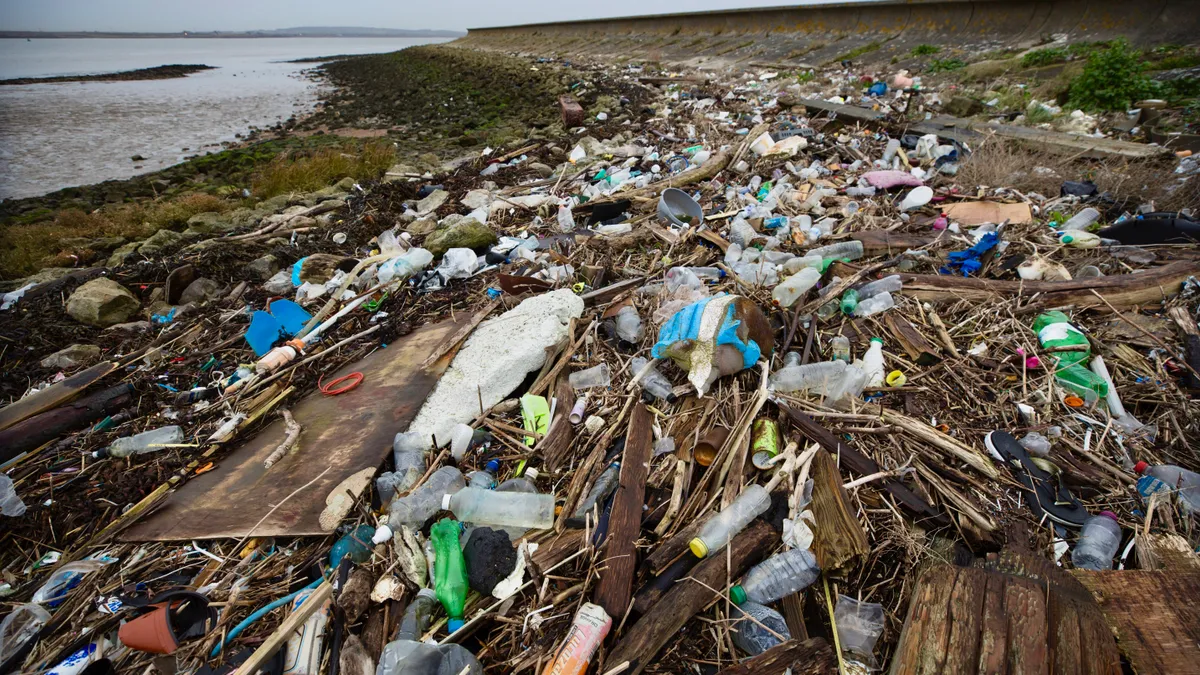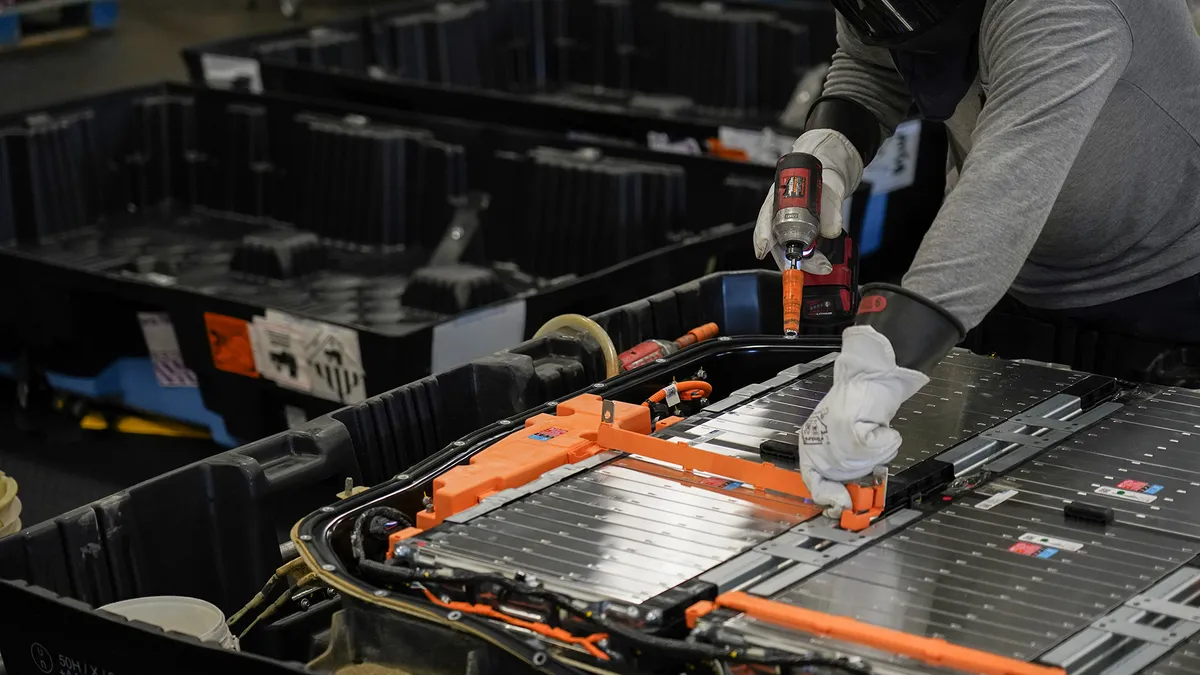Seattle-based PCC Community Markets announced last year it would make all of its deli packaging compostable by 2022. So far, the retailer says it's 80% of the way there.
The company's hot and cold beverage cups, soup cups, lids, straws, utensils, pizza boxes, sandwich wrappers and hot and salad bar boxes have been compostable for years. But its white foam chicken trays, clear plastic clamshells, clear plastic deli salad containers and olive bar cups and lids were previously only recyclable.
Those items are now compostable as well — but getting to that point has been challenging, PCC CEO Cate Hardy told Grocery Dive. Finding and researching new options took a significant amount of time. Once the company found its top contenders, it performed testing for heat, freezing, drip, leakage and whether the packaging could be dropped without bursting.
"We got over a dozen samples in, did a lot of tests and finally landed on the ones that are going to be launching," Hardy said.
PCC's new packaging is made up primarily of polylactic acid bioplastic (PLA) made from genetically modified corn, except for the lining of its paperboard boxes, which is made from a water-based film.
The new packaging is more expensive, Hardy said. Together with materials and R&D, PCC is spending hundreds of thousands of dollars annually.
"It's not insignificant. It's a measurable number," she said. "But, I think that just underlines our deep commitment to the environment."
However, the retailer won't pass these costs on to its customers, she said.
"We're a triple bottom line company," explained Hardy. "We function with a social, environmental and financial bottom line and we frequently have to consider decisions where these bottom lines are in conflict with each other."
PCC has also unveiled a "compostable" logo along with its new packaging rollout. The logo will be imprinted on all compostable products to let consumers know what is compostable and what is not. Hardy said she hopes other retailers in the area will adopt the symbol and help it spread across the nation as composting grows in popularity.
PCC has been a leader in plastic reduction across the industry, with many of its initiatives coming before local municipalities mandated it.
The grocer's move to compostable straws and utensils began almost three years before the city of Seattle banned them. PCC also stopped the use of single-use plastic grocery bags in 2007, five years before Seattle implemented a ban and years before most major grocers began promoting reusable bags.
Since then, many retailers have turned to plastic reduction initiatives. Kroger is working toward phasing out single-use plastic bags by 2025, with its Washington-based banner QFC being the first to remove plastic bags in April. Seven states now have their own bans, plus Hawaii has a de facto ban across all counties. In all, more than 400 local governments have now banned or taxed plastic bags in the U.S.
Composting outside of Seattle
Can grocers follow PCC's lead? Retailers like Trader Joe's have committed to stepping up their use of recyclable plastic, but going compostable poses numerous hurdles, from cost to infrastructure.
In PCC's case, sustainability initiatives have become a major selling point to its target audience of affluent Seattle residents who are generally more environmentally conscious than the rest of the country. Most of PCC's shoppers are aged 44 and younger, have a personal income over $125,000 per year and have an advanced degree, according to Numerator.
"The demographics in Seattle are very different than the demographics of other places in the country," Lynn Dyer, president of Foodservice Packaging Institute, told Grocery Dive. The city has consistently ranked as one of the top sustainable cities in the U.S. for many years now. The city was among the first to ban expanded polystyrene foam in 2009, and in 2010 required all food service items to be recyclable or compostable.
This general acceptance of composting, a strong desire for sustainable options from consumers and cooperation from the city makes a packaging switch easier, she said. Every homeowner or apartment building in the city of Seattle has a bin for yard scraps, food waste and other compostable materials. Just like waste or recycling, organics are collected on a regular basis.
"In that situation where you have a strong composting infrastructure available and a city that is interested in working closely with composters, residents and retailers, you have a great set up to be able to approve and encourage the use of lot of these products"

Lynn Dyer
President of Foodservice Packaging Institute
Few other cities have these facilities. A BioCycle study found that out of the more than 127 million U.S. households, only about 5 million have government-supported curbside organics collection. However, the number is on the rise. Curbside collection programs increased from 79 in 2014 to 148 in 2017, according to BioCycle.
Dyer said the lack of infrastructure can make it difficult for other retailers to join the compostable packaging journey.
"In that situation where you have a strong composting infrastructure available and a city that is interested in working closely with composters, residents and retailers, you have a great set up to be able to approve and encourage the use of lot of these products," she said.
At the same time, consumers are becoming more vocal about their desire for initiatives like phasing out plastic, installing solar panels and donating excess food. Plastic-free stores across the globe have grabbed headlines recently.
PCC's Hardy believes that momentum will continue. While being first to move toward sustainable packaging has been difficult, she hopes the company will once again prove itself to be a trend-setter.
"We're happy to be the one doing the heavy lifting of finding these compostable items in hopes that others will embrace them as well," Hardy said.








